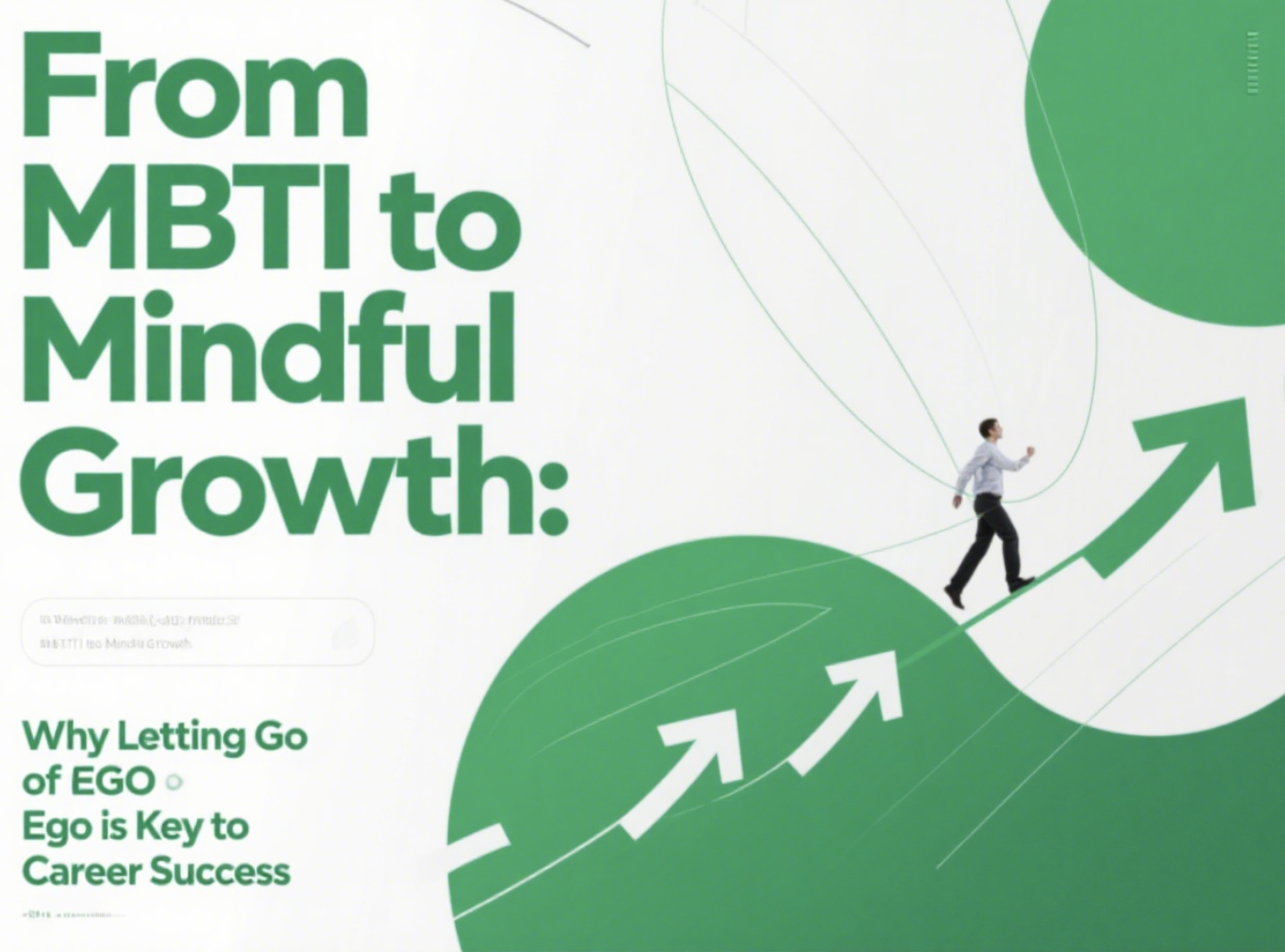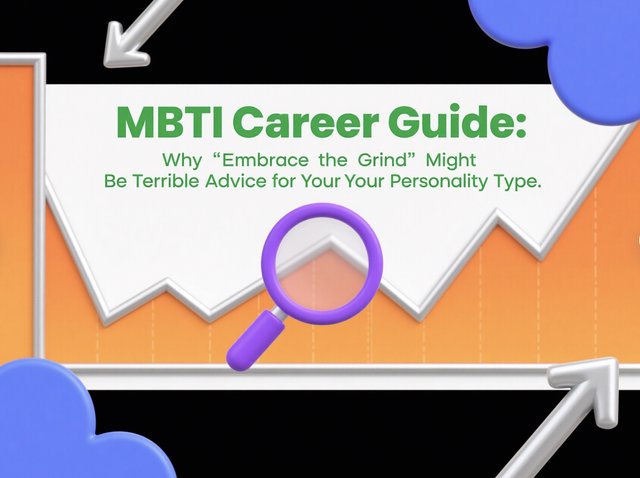From MBTI to Mindful Growth: Why Letting Go of Ego is Key to Career Success

In the fast-paced world of career advancement and personal development, the allure of proving one’s intelligence or superiority can be tempting. Whether through clever social experiments, one-upmanship, or showcasing expertise, many fall into the trap of conflating “being smart” with true growth. However, as professionals dedicated to MBTI and career development, we recognize that such behaviors often stem from deeper personality tendencies—ones that, when unchecked, can hinder long-term success.
The Ego Trap: When Intelligence Becomes a Limitation
The original anecdote describes a scenario where the author contemplates manipulating AI-generated content to expose others’ overconfidence. While this might seem like a harmless intellectual exercise, it reveals a critical flaw: the prioritization of ego over empathy. In MBTI terms, this aligns with traits often seen in high-logic types (e.g., INTJ or INTP), where the drive to “win” debates or showcase analytical prowess can overshadow Emotional Intelligence.
However, as the author reflects, this mindset is ultimately counterproductive. Career success isn’t about proving superiority; it’s about collaboration, adaptability, and continuous learning. For instance, an INTJ’s strategic brilliance is most impactful when paired with an ENFJ’s interpersonal skills, not when used to belittle others.
The MBTI Lens: Self-Awareness as a Career Superpower
Understanding your MBTI type isn’t just about labeling strengths—it’s about recognizing blind spots. The author’s realization—”I’m no better than the overconfident peers I criticize”—highlights a pivotal moment of self-awareness. Here’s how different personality types can leverage this insight:
Thinkers (T-types): Channel critical thinking into constructive feedback, not criticism. Use logic to solve problems, not to “outsmart” others.
Feelers (F-types): Balance empathy with assertiveness. Avoid people-pleasing at the cost of self-respect.
Intuitives (N-types): Ground big-picture ideas in practical steps. Avoid dismissing others’ “simpler” perspectives.
Sensors (S-types): Embrace innovation without resisting change. Detail-oriented work thrives alongside creativity.
From Competition to Growth: A Career Development Framework
The author’s shift from ego-driven games to humility mirrors a key career principle: sustainable success requires mindful growth. Here’s how to apply this:
Audit Your Motivations: Are you pursuing a goal to prove something, or to genuinely grow? (E.g., an ISTP mastering a skill for joy vs. for accolades.)
Seek Feedback, Not Validation: High performers (like ENTJs) often mistake praise for progress. Instead, solicit constructive criticism.
Embrace “Beginner’s Mind”: Even experts (e.g., an ESTJ with decades of experience) benefit from assuming they have more to learn.
AI, Authenticity, and the Future of Work
The author’s experiment with AI-generated essays also raises a timely question: In an era of automation, what makes us uniquely human? Career longevity will depend on:
Emotional Intelligence (EQ): Machines lack empathy—a core strength of F-types.
Adaptability: P-types excel here; rigidity (common in J-types) can be a liability.
Ethical Judgment: AI can’t replicate moral reasoning, a trait INFJs and ISTJs often prioritize.
Conclusion: The Path to Fulfilling Work
The author’s journey—from intellectual games to self-doubt to mindful reflection—offers a blueprint for career fulfillment. Whether you’re an ENFP exploring passions or an ISFJ seeking stability, growth begins when we replace “Am I the smartest?” with “How can I contribute?”
By aligning your MBTI strengths with humility and purpose, you don’t just advance your career—you redefine what success means.
Final Note: For personalized MBTI career insights, explore ProMbti’s tools to discover how your personality type can unlock a more meaningful professional journey.




